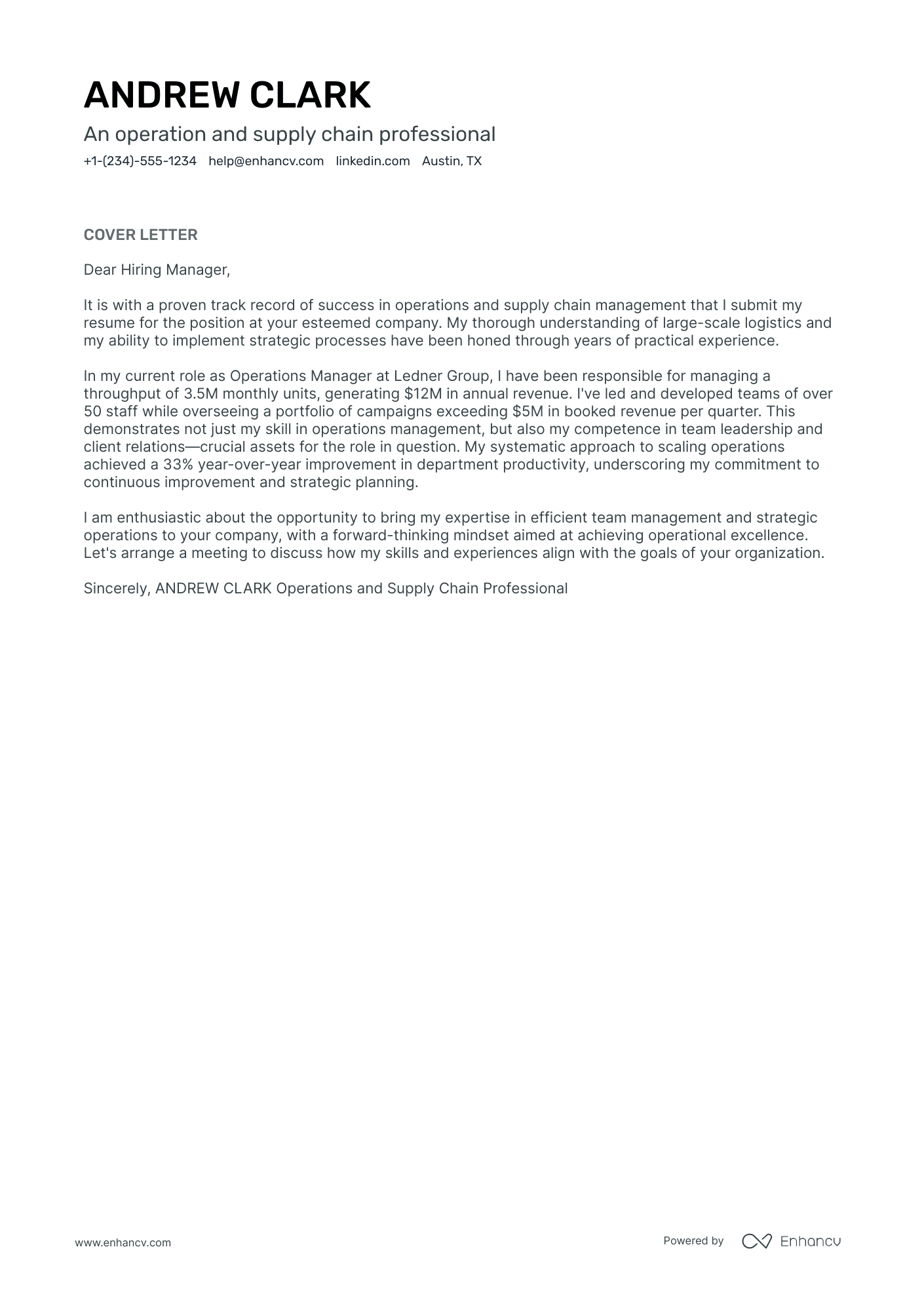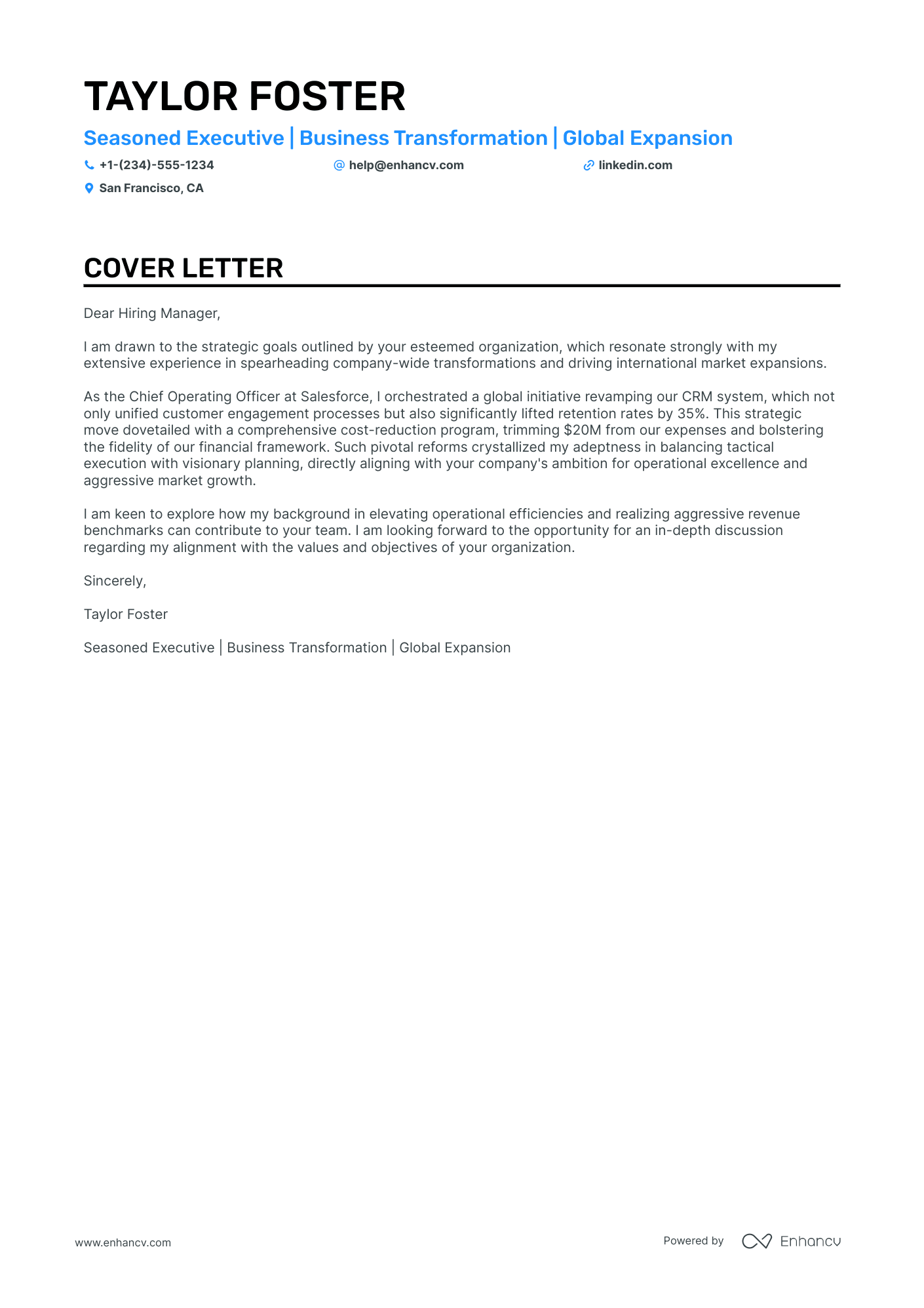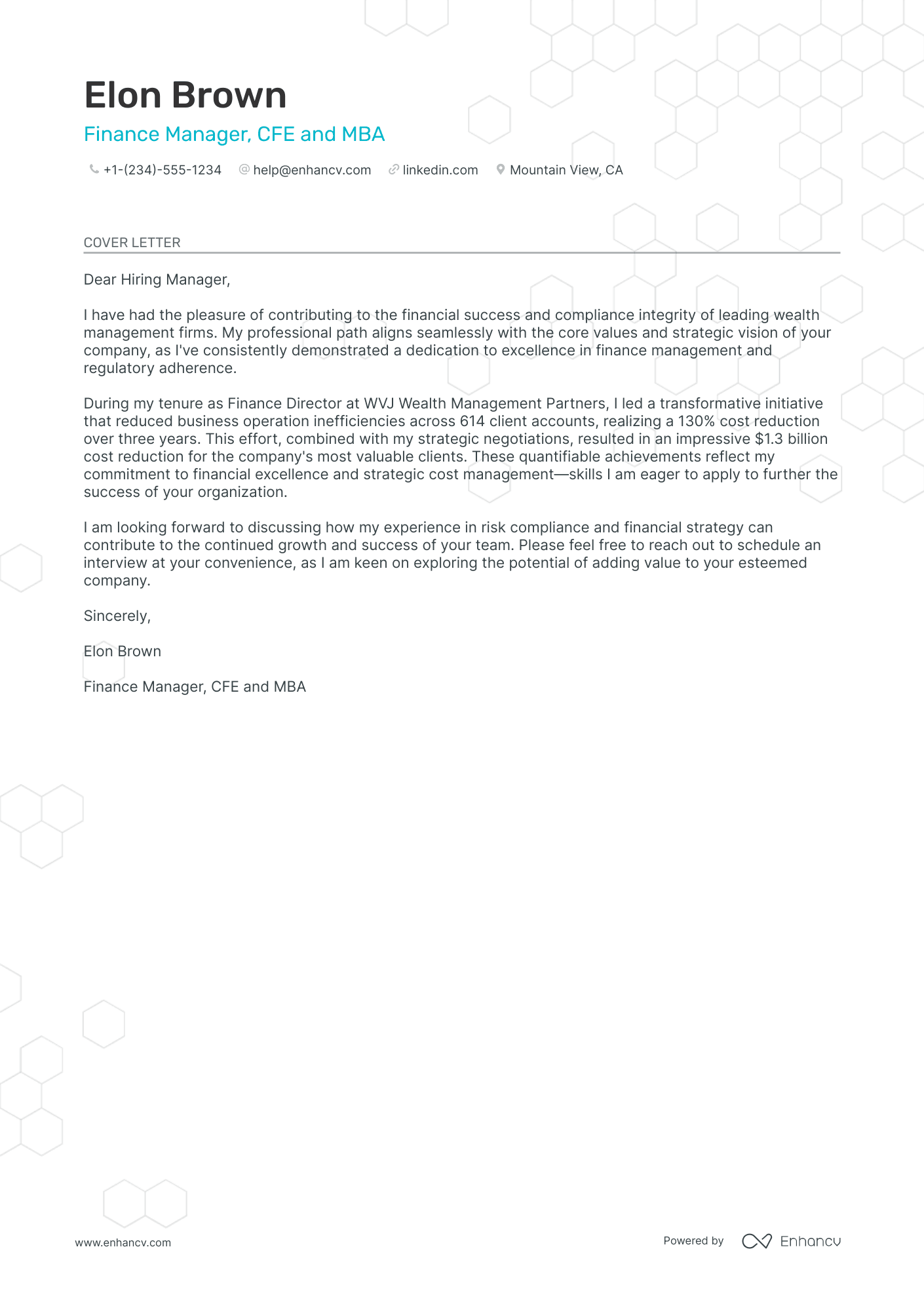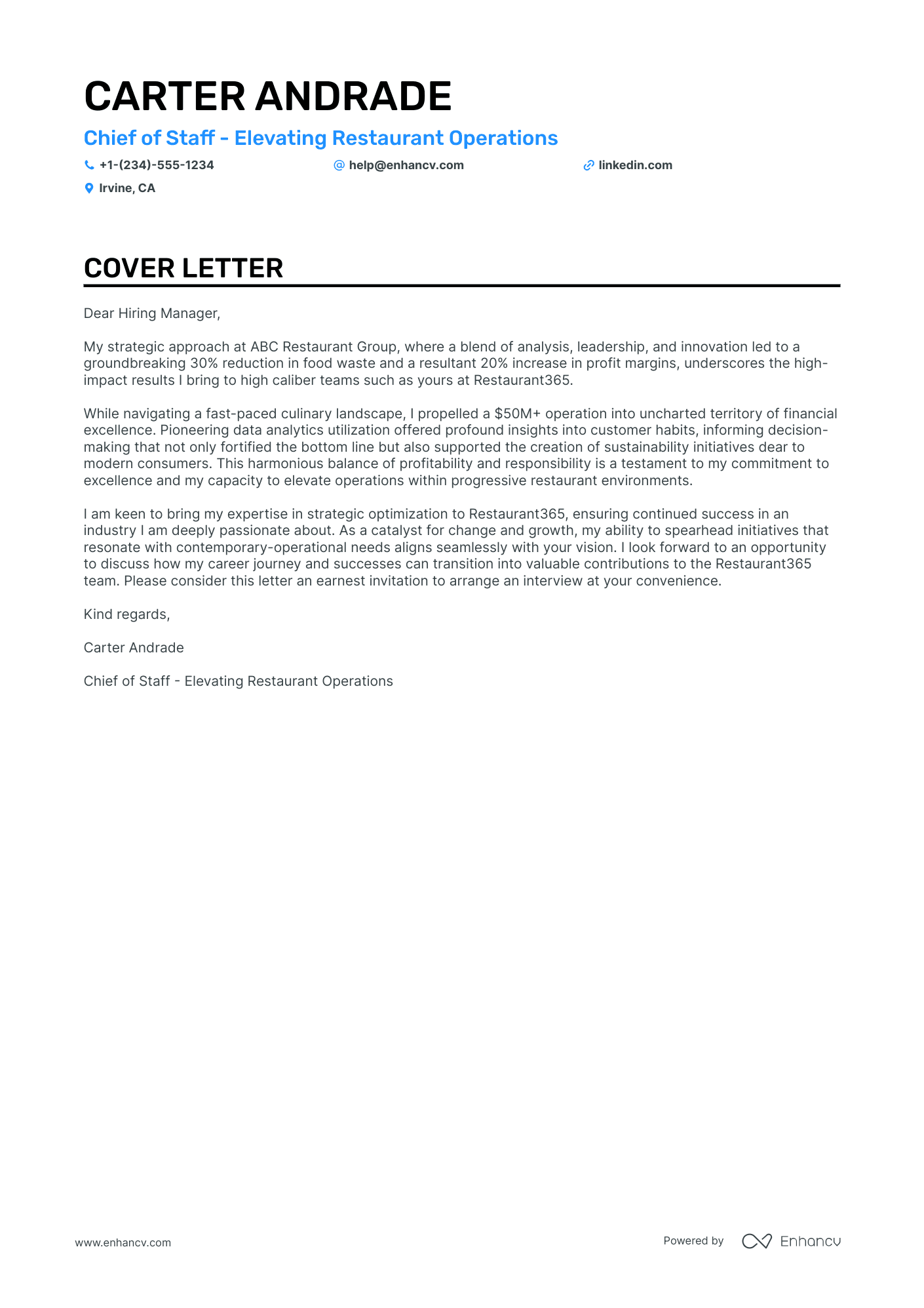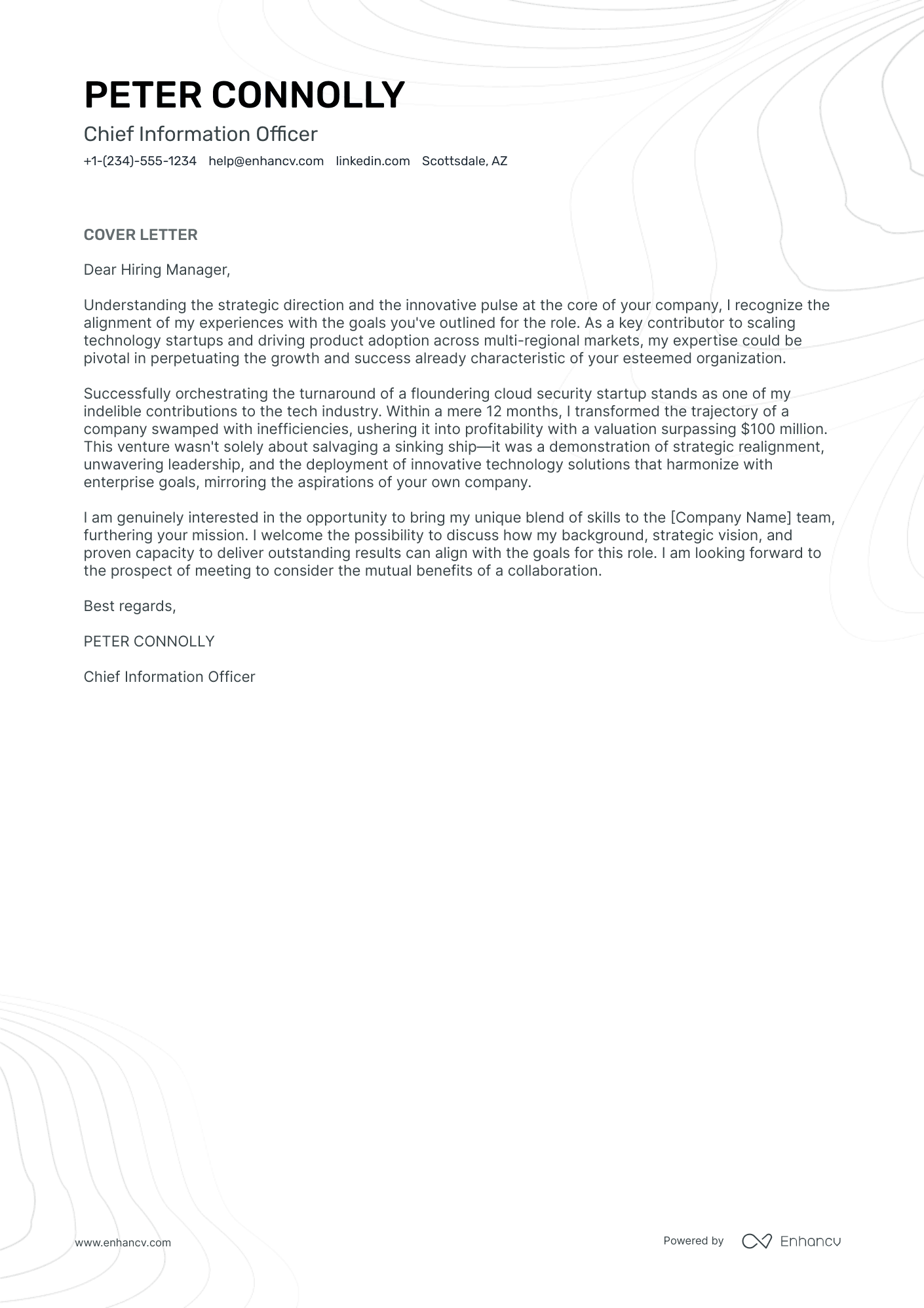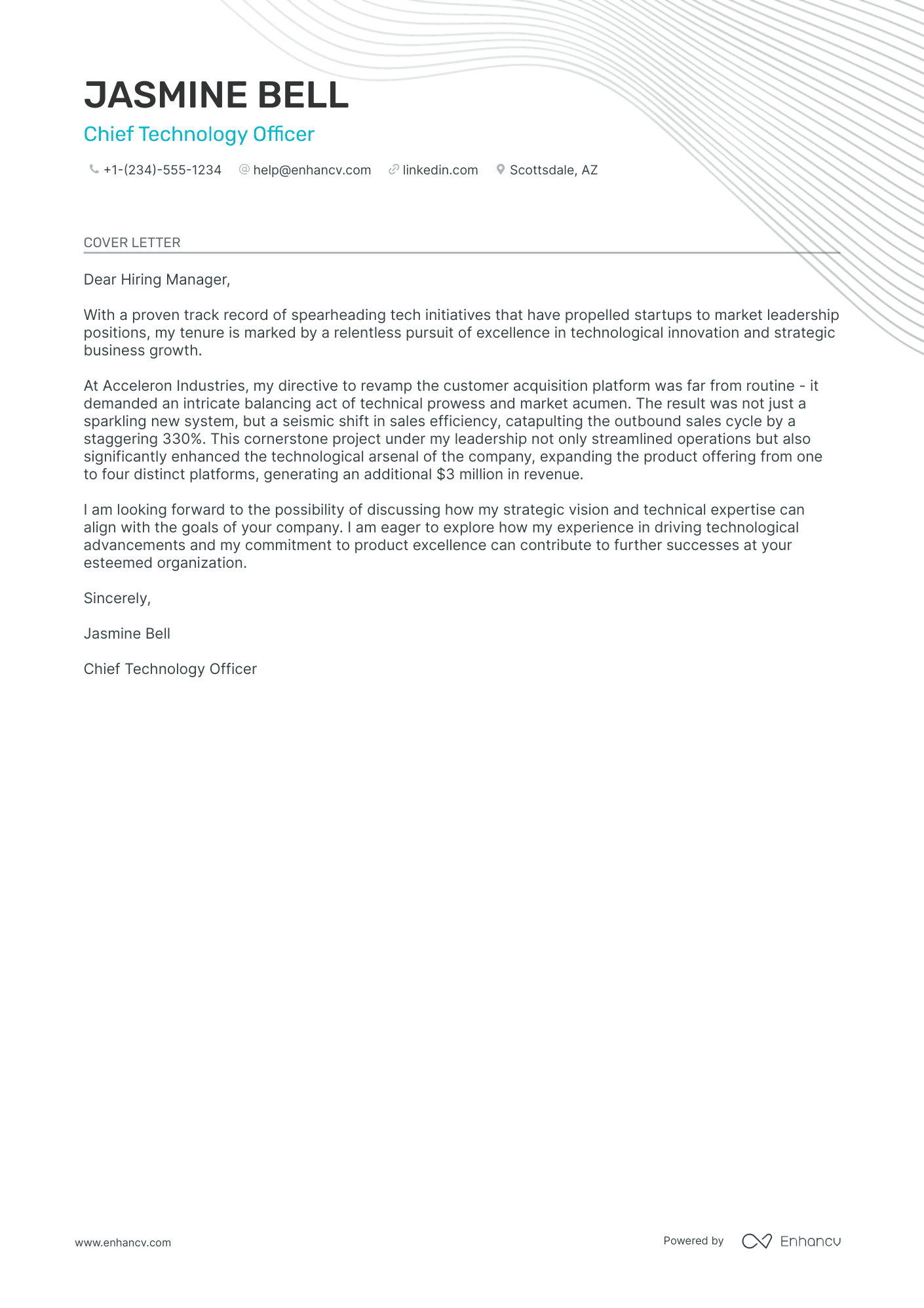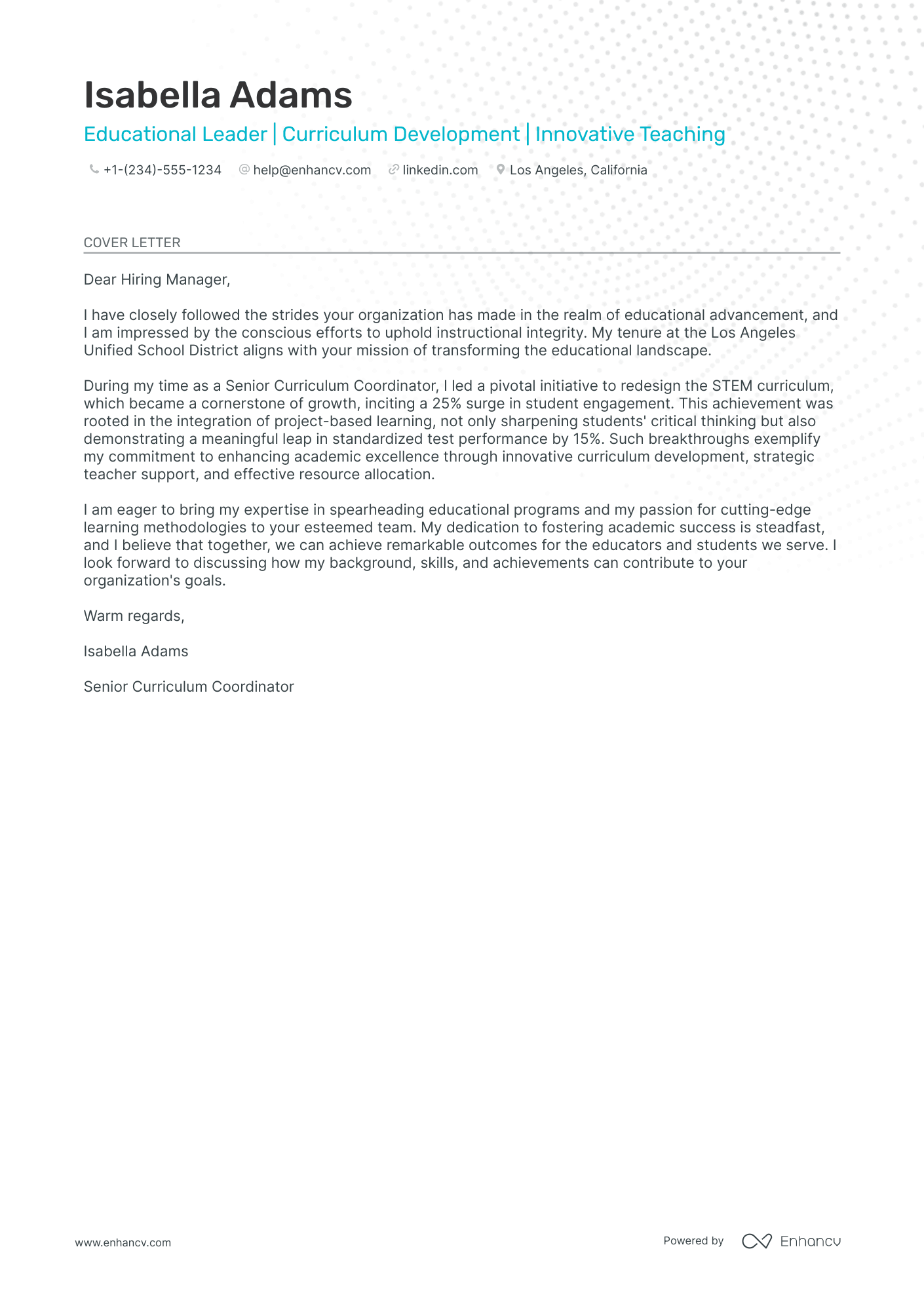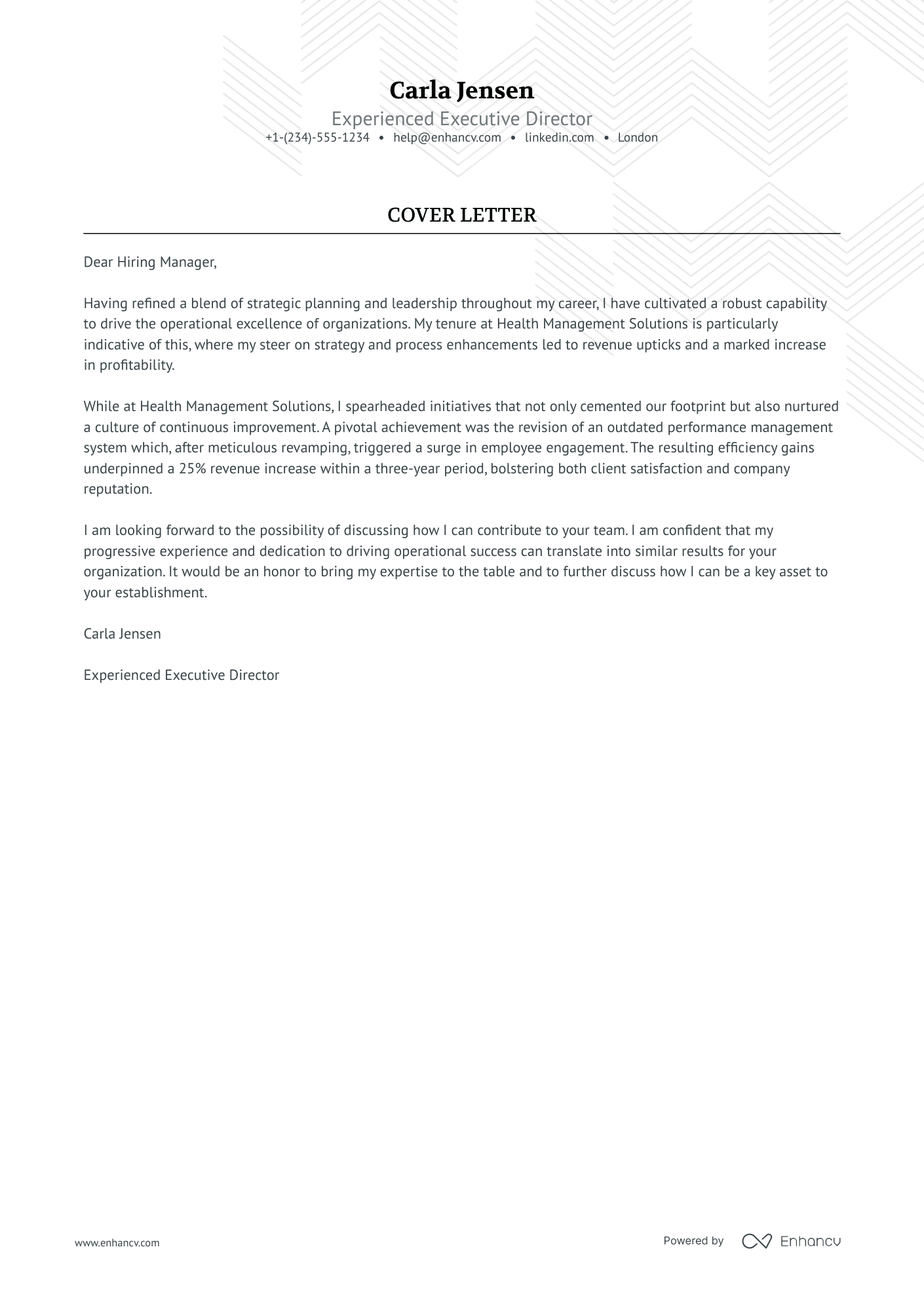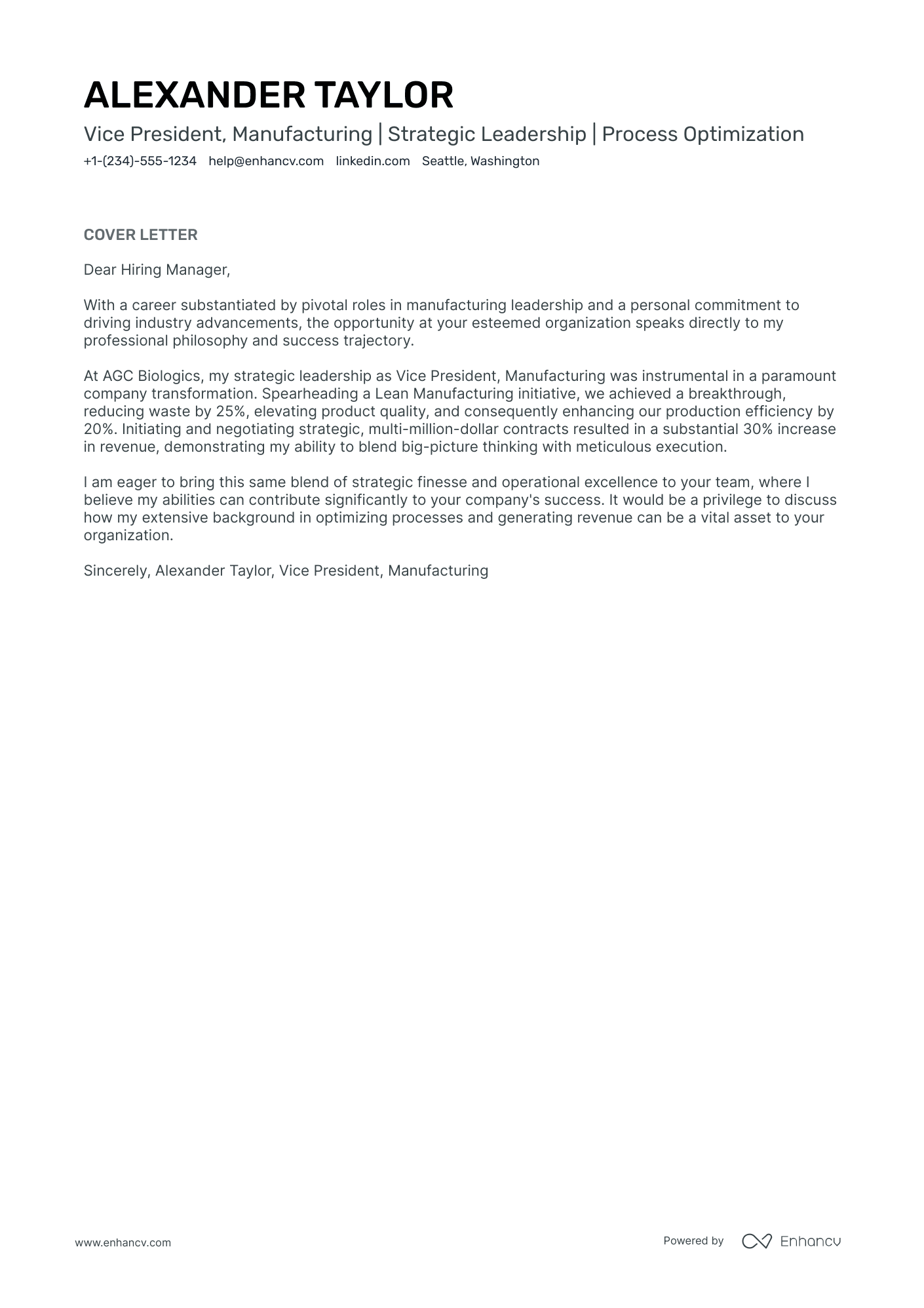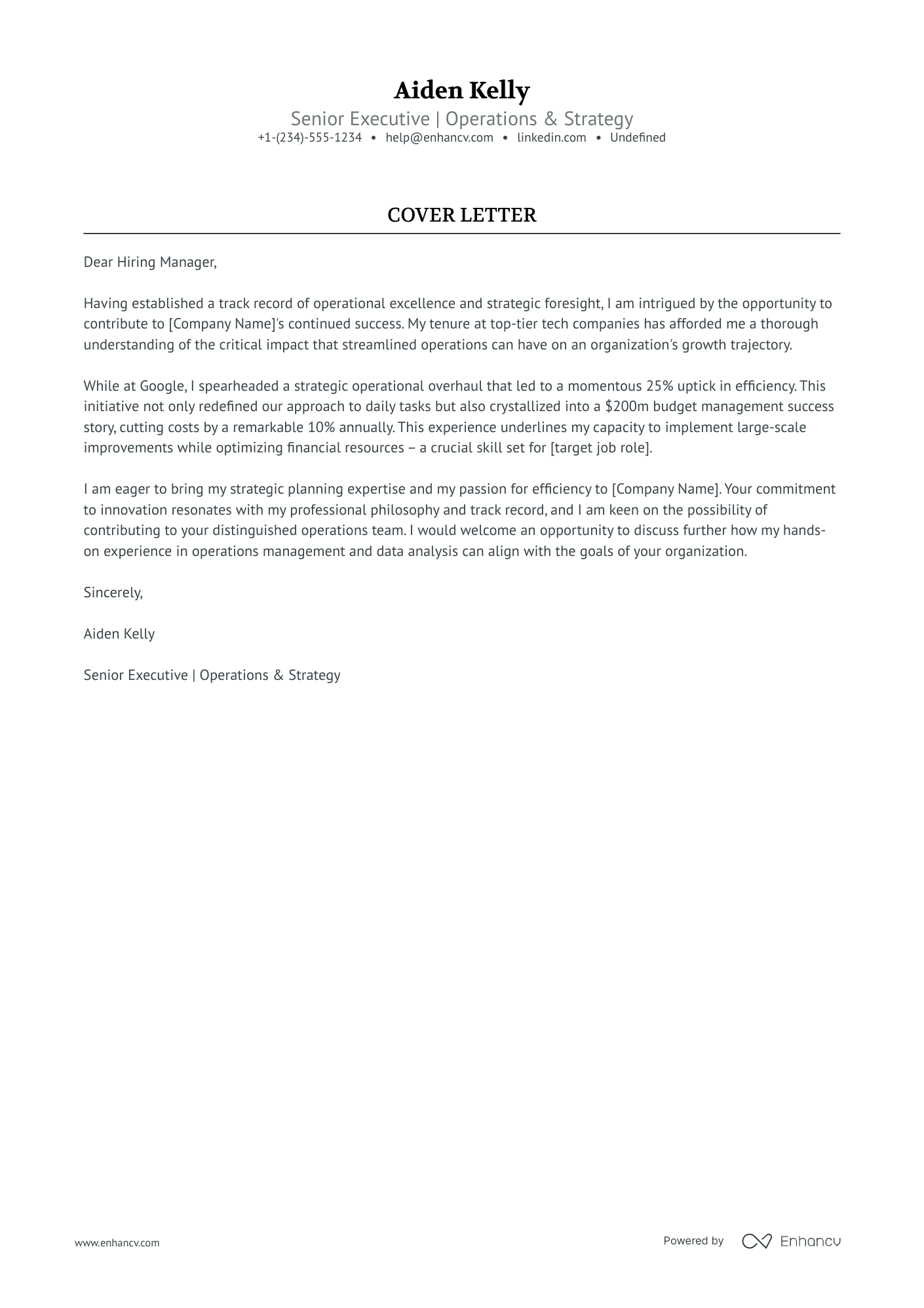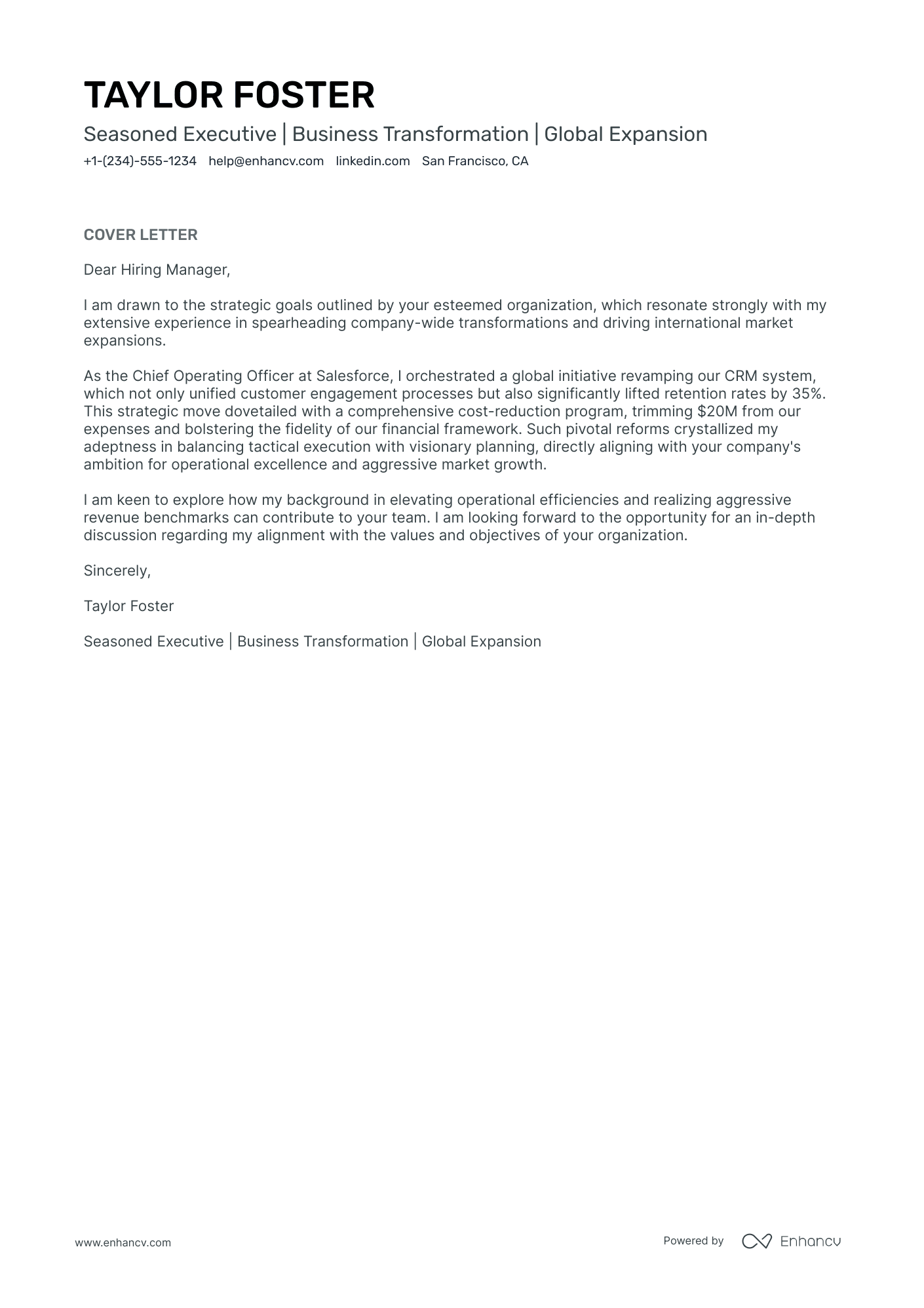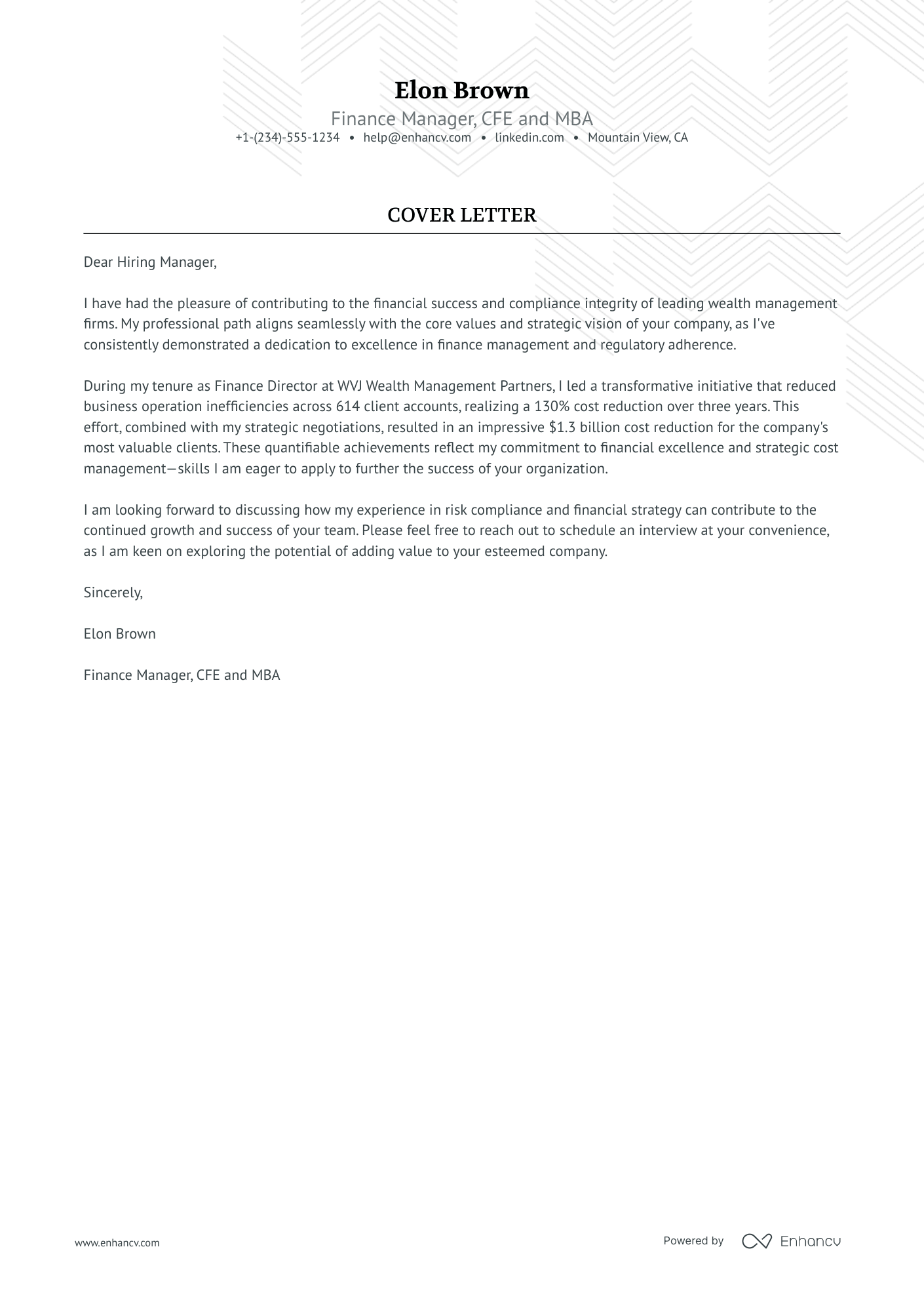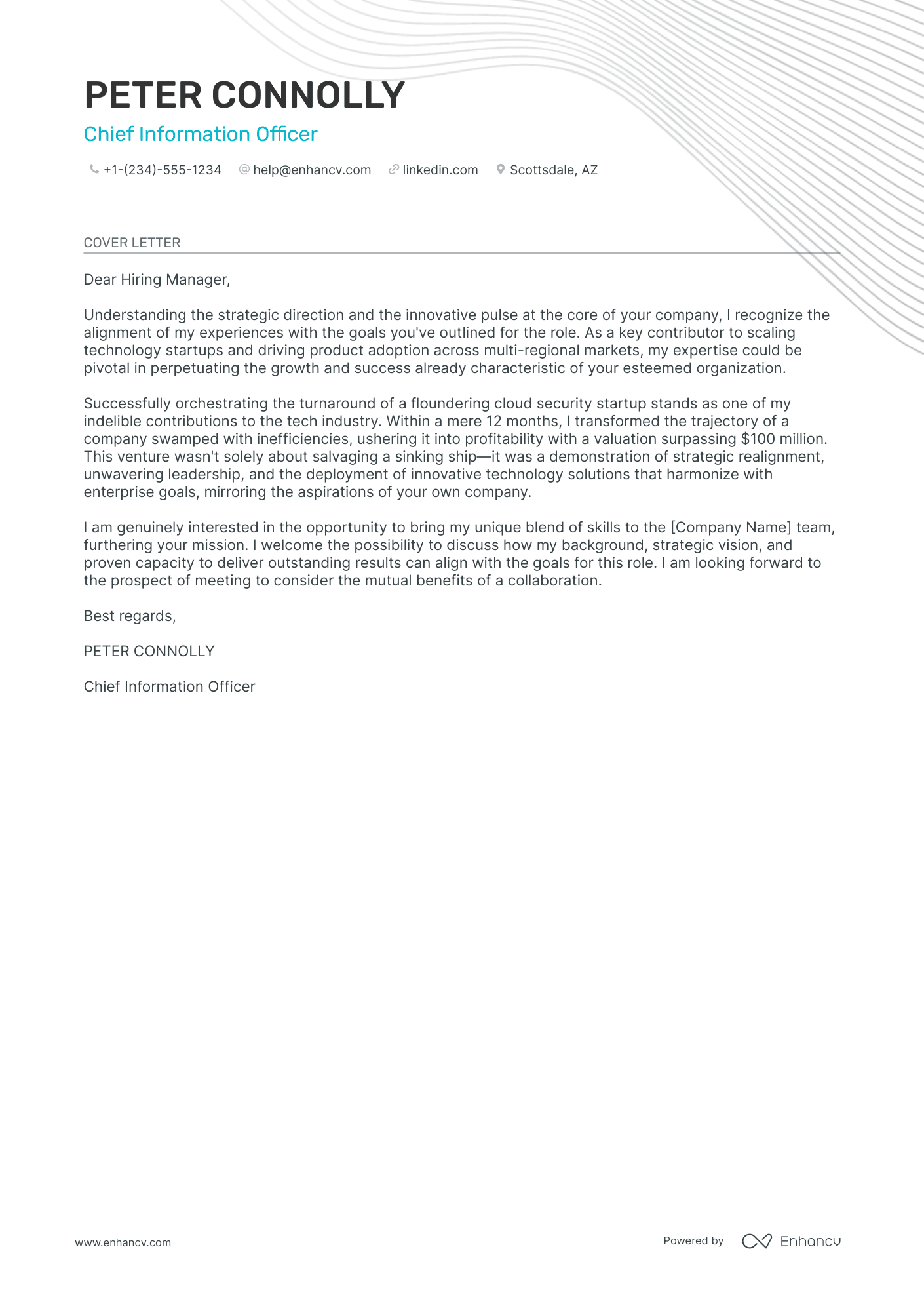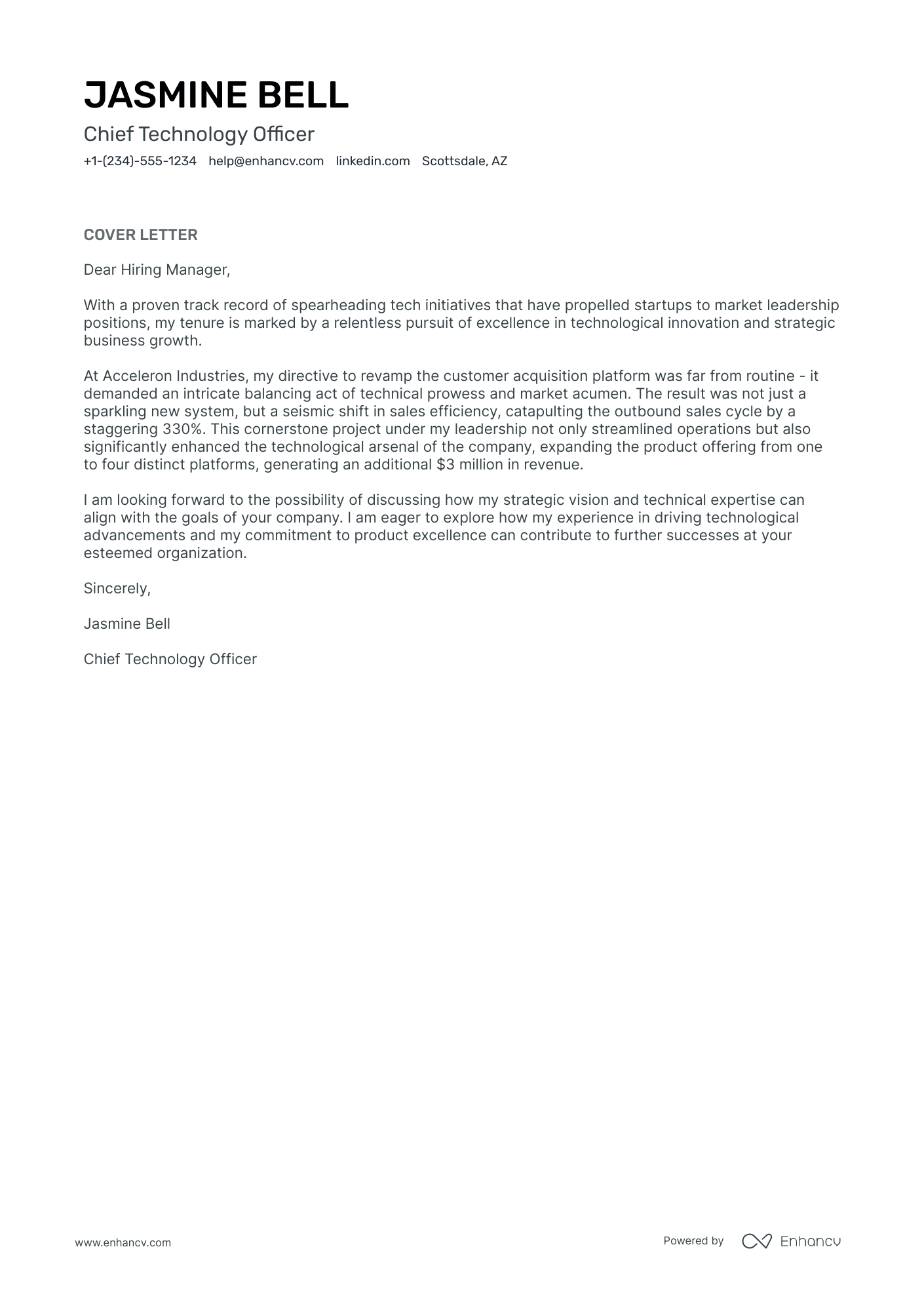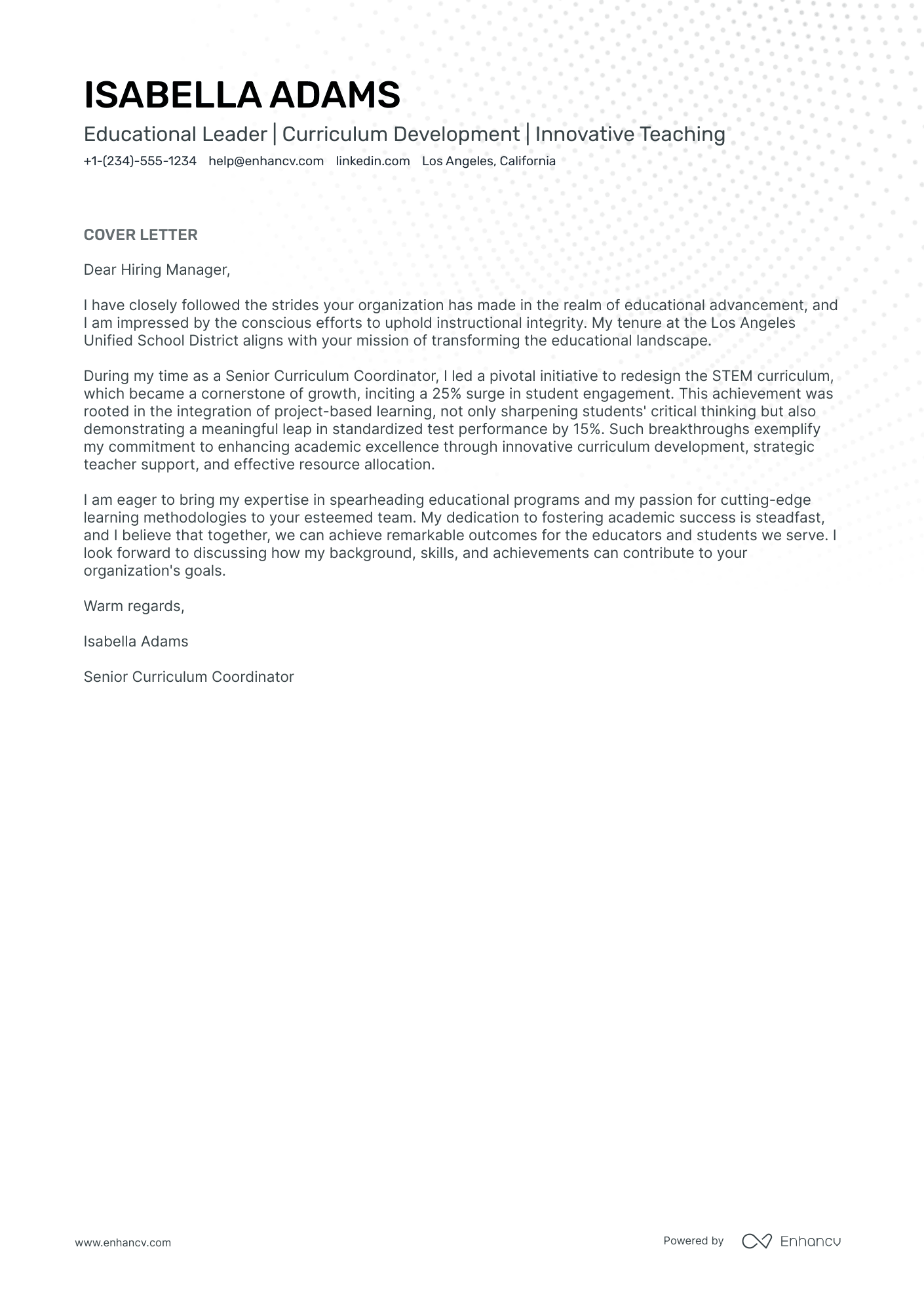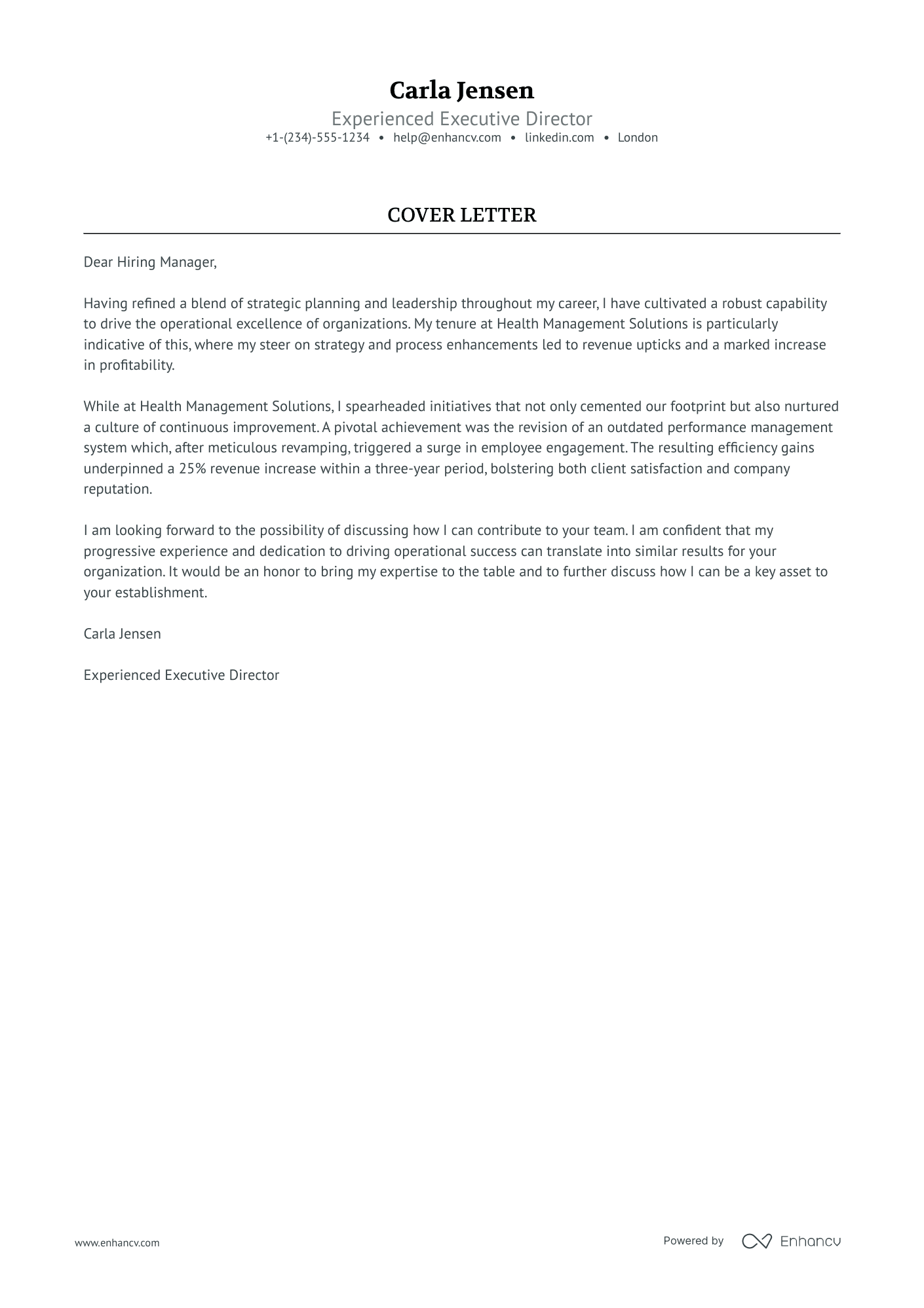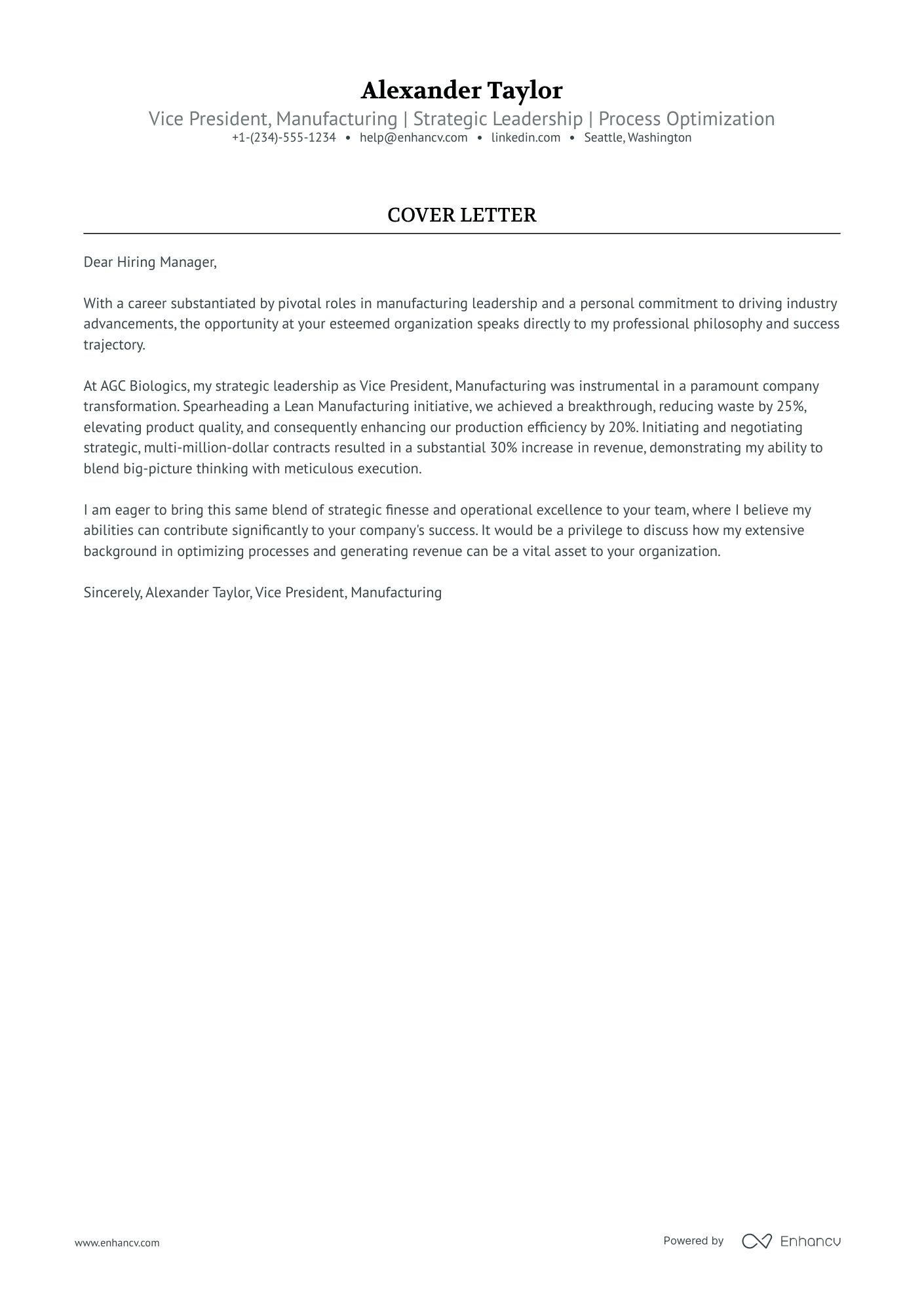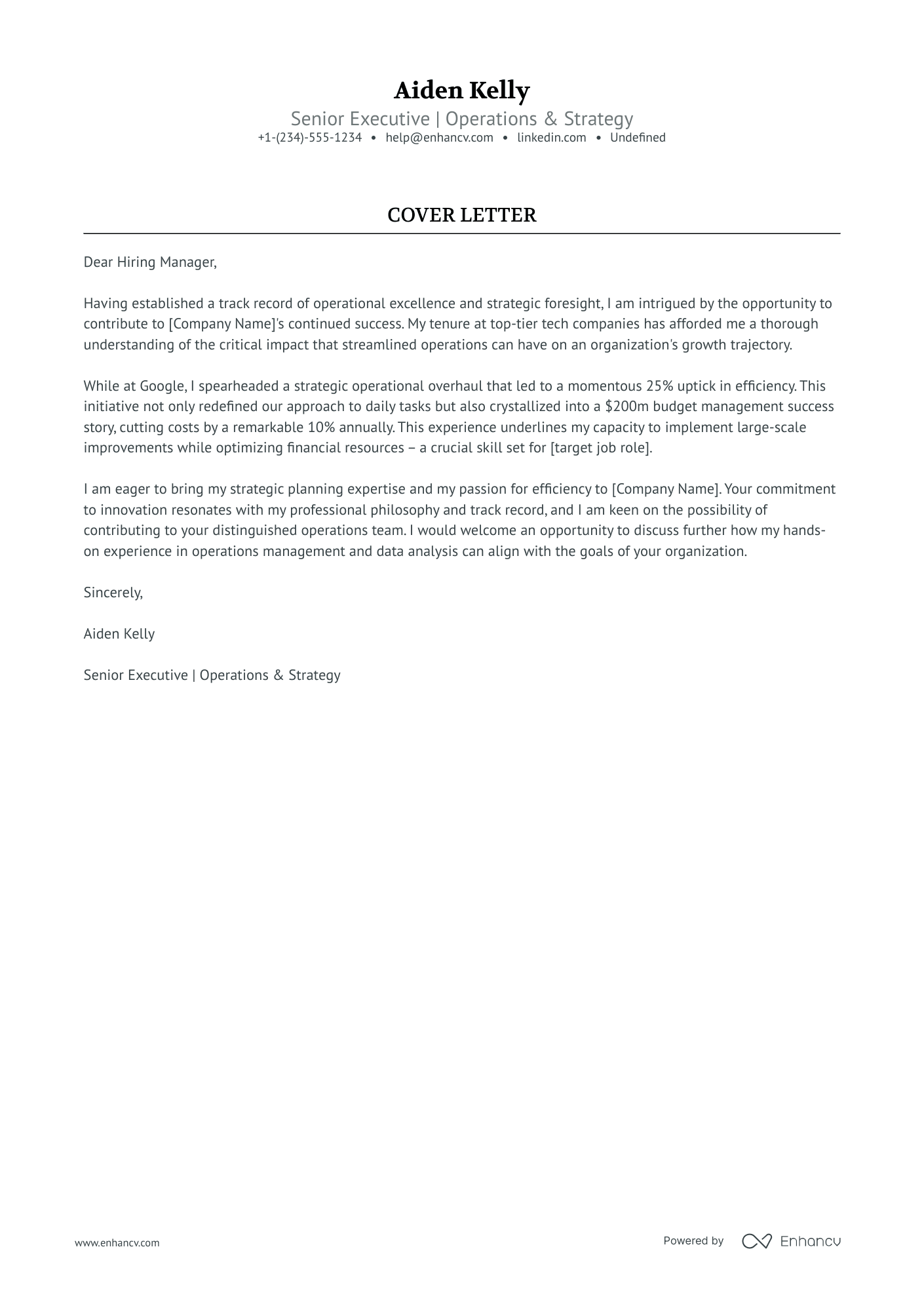Starting your job hunt, you've hit a snag: crafting an executive cover letter that stands out. It's not just a repeat of your resume—it's your chance to showcase a shining professional moment, woven into a compelling narrative. Yet, the task can be daunting. How do you strike the perfect balance of formality without falling into the trap of tired clichés? Keep it concise; one page is your limit. Let's unravel these challenges and help you pen an executive cover letter that captivates and convinces.
- Personalize your executive cover letter and get inspired by other professionals to tell a compelling story;
- Format and design your executive cover letter to make an excellent first impression;
- Introduce your best achievement in your executive cover letter to recruiters;
- How to make sure recruiters get in touch with you, using your executive cover letter greeting and closing paragraphs.
What is more, did you know that Enhancv's AI can write your cover letter for you? Just upload your executive resume and get ready to forward your job application in a flash.
If the executive isn't exactly the one you're looking for we have a plethora of cover letter examples for jobs like this one:
Drop your resume here or choose a file.
PDF & DOCX only. Max 2MB file size.
Executive cover letter example
Jordan Smith
San Francisco, California
+1-(234)-555-1234
help@enhancv.com
- Emphasizing previous leadership experience and the successful management of a sizable team highlights the applicant's capability to handle responsibility, a crucial aspect for managerial roles.
- Detailing a specific achievement, such as the development of a strategic communication plan that resulted in a measurable increase in brand visibility, showcases the applicant's ability to deliver results and their expertise in strategic planning.
- Expressing the desire to apply past experience to drive growth and explore new opportunities demonstrates forward-thinking and an understanding of the need for innovation in technology-related positions.
- Demonstrating an understanding of the value of strategic media relations in the technology sector suggests specialized knowledge that is directly relevant to the role they are applying for.
What about your executive cover letter format: organizing and structuring your information
Here is one secret you should know about your executive cover letter assessment. The Applicant Tracker System (or ATS) won't analyze your cover letter.
You should thus focus on making an excellent impression on recruiters by writing consistent:
- Header
- Greeting
- Introduction
- Body paragraphs (and explanation)
- Promise or Call to action
- Signature (that's optional)
Now, let's talk about the design of your executive cover letter.
Ensure all of your paragraphs are single-spaced and have a one-inch margins on all sides (like in our cover letter templates).
Also, our cover letter builder automatically takes care of the format and comes along with some of the most popular (and modern) fonts like Volkhov, Chivo, and Bitter.
Speaking of fonts, professionals advise you to keep your executive cover letter and resume in the same typography and avoid the over-used Arial or Times New Roman.
When wondering whether you should submit your executive cover letter in Doc or PDF, select the second, as PDF keeps all of your information and design consistent.
Don’t stress about writing your cover letter. Use our free cover letter generator to make one in seconds.
The top sections on a executive cover letter
- Header: This section includes the candidate's contact information, the date, and the employer's details, which is crucial for establishing a professional tone and ensuring the letter reaches the appropriate person.
- Opening Greeting: A personalized salutation addresses the hiring manager directly, demonstrating the candidate's attention to detail and respect for proper business etiquette.
- Executive Summary: This introductory paragraph should showcase the candidate's high-level experience and strategic vision, aligning with the executive role's requirement for leadership and decision-making capabilities.
- Leadership and Achievements: A dedicated section to highlight past leadership experiences, quantifiable accomplishments, and the impact on previous organizations, which is essential for an executive position.
- Call to Action and Closing: A strong concluding statement that invites further discussion and expresses enthusiasm for the role, leaving a lasting impression on the recruiter and reinforcing the executive's proactive approach.
Key qualities recruiters search for in a candidate’s cover letter
- Strategic vision and foresight: To demonstrate the ability to steer the company towards future growth and to anticipate industry trends.
- Leadership and team-building skills: To show that the executive can inspire, manage, and unify teams to achieve company goals.
- Proven track record in achieving results: To provide evidence of past accomplishments and successes in improving company performance, meeting targets, and driving growth.
- Financial acumen: To emphasize the capability to manage budgets, investments, and financial strategies efficiently.
- Relationship-building and networking abilities: To illustrate the potential to cultivate partnerships, negotiate deals, and represent the company in various circles.
- Adaptability and crisis management: To indicate readiness to handle change, resolve conflicts, and guide the company through challenging times.
What greeting should you use in your executive cover letter salutation
A simple "Hello" or "Hey" just won't work.
With your executive cover letter salutation, you set the tone of the whole communication.
You should thus address the hiring managers by using their first (or last name) in your greeting.
But how do you find out who's recruiting for the role?
The easiest way is to look up the role on LinkedIn or the corporate website.
Alternatively, you could also contact the organization via social media or email, for more information.
Unable to still obtain the recruiter's name?
Don't go down the "To whom it may concern path". Instead, start your cover letter with a "Dear HR team".
List of salutations you can use
- Dear [Hiring Manager's Name],
- Dear [Mr./Ms./Dr. Last Name],
- Dear [Search Committee or Department Name],
- Dear [Title/Position],
- Dear Hiring Team,
- Dear [Company Name] Team,
First introductions in your executive cover letter
Within your executive cover letter introduction, genuinely state what you like about the organization.
Research the latest company projects, honorary awards, company updates, etc.
Write up to two sentences to let recruiters know what impresses you about the company,
This would help you to set a good tone for the rest of the communication.
What comes next: your executive cover letter middle paragraphs
In the next three to six paragraphs (or the body of your executive cover letter) you have to prove your unique value.
Most candidates tend to mess up at this stage. They tend to just copy-paste information from their resume.
That's one big no-no.
Remember that when writing your executive cover letter, it has to be personalized. And, your ultimate aim is to catch the recruiter's eye.
So, look back on key job requirements and write down a list that includes the ones you cover.
Next, select just one key achievement from your professional (or personal) history that meets those advert keywords.
Narrate a story around how you've grown your skill set and knowledge. Also, aim to show the unique understanding or soft skills you bring about, thanks to your past success.
Final words: writing your executive cover letter closing paragraph
The final paragraph of your executive cover letter allows you that one final chance to make a great first impression.
Instead of going straight to the "sincerely yours" ending, you can back up your skills with a promise of:
- how you see yourself growing into the role;
- the unique skills you'd bring to the organization.
Whatever you choose, always be specific (and remember to uphold your promise, once you land the role).
If this option doesn't seem that appealing to you, close off your executive cover letter with a follow-up request.
You could even provide your availability for interviews so that the recruiters would be able to easily arrange your first meeting.
Addressing limited to no experience in the executive cover letter
There's nothing to worry about if you lack professional experience.
Your executive cover letter could bridge the gaps in your professional history by focusing on what matters most to recruiters, that's either:
- skills - focusing on transferable ones you've gained, thanks to your life experience (e.g. volunteering, certificates, etc.);
- achievements - select the most relevant and noteworthy one from your history (e.g. education, projects, etc.);
- motivation - describe how you envision your professional growth in the next up to five years, thanks to this opportunity.
Key takeaways
Writing your executive cover letter has never been easier, so remember to:
- Select a executive cover letter template that automatically meets industry formatting (e.g. has one-inch margins, is single-spaced, is in PDF, etc.);
- Make your executive cover letter personal by mentioning the recruiters' first or last name;
- Within the introduction, describe what you like best about the company in no more than two sentences;
- Use your executive cover letter body to tell a story of your greatest achievement, backed up by job-relevant skills and technologies;
- If you have no professional experience, be honest about it in your executive cover letter, but also write about your unique talents.
Executive cover letter examples
By Experience
COO
By Role
